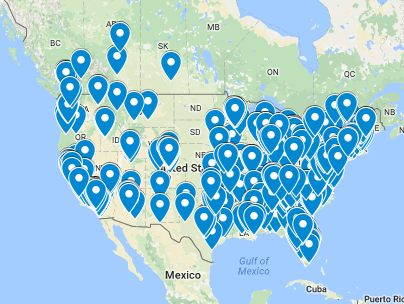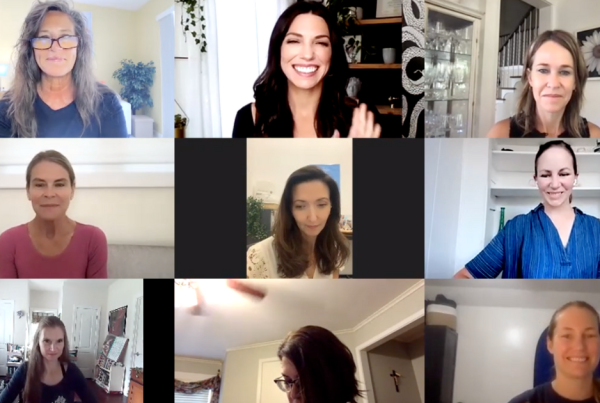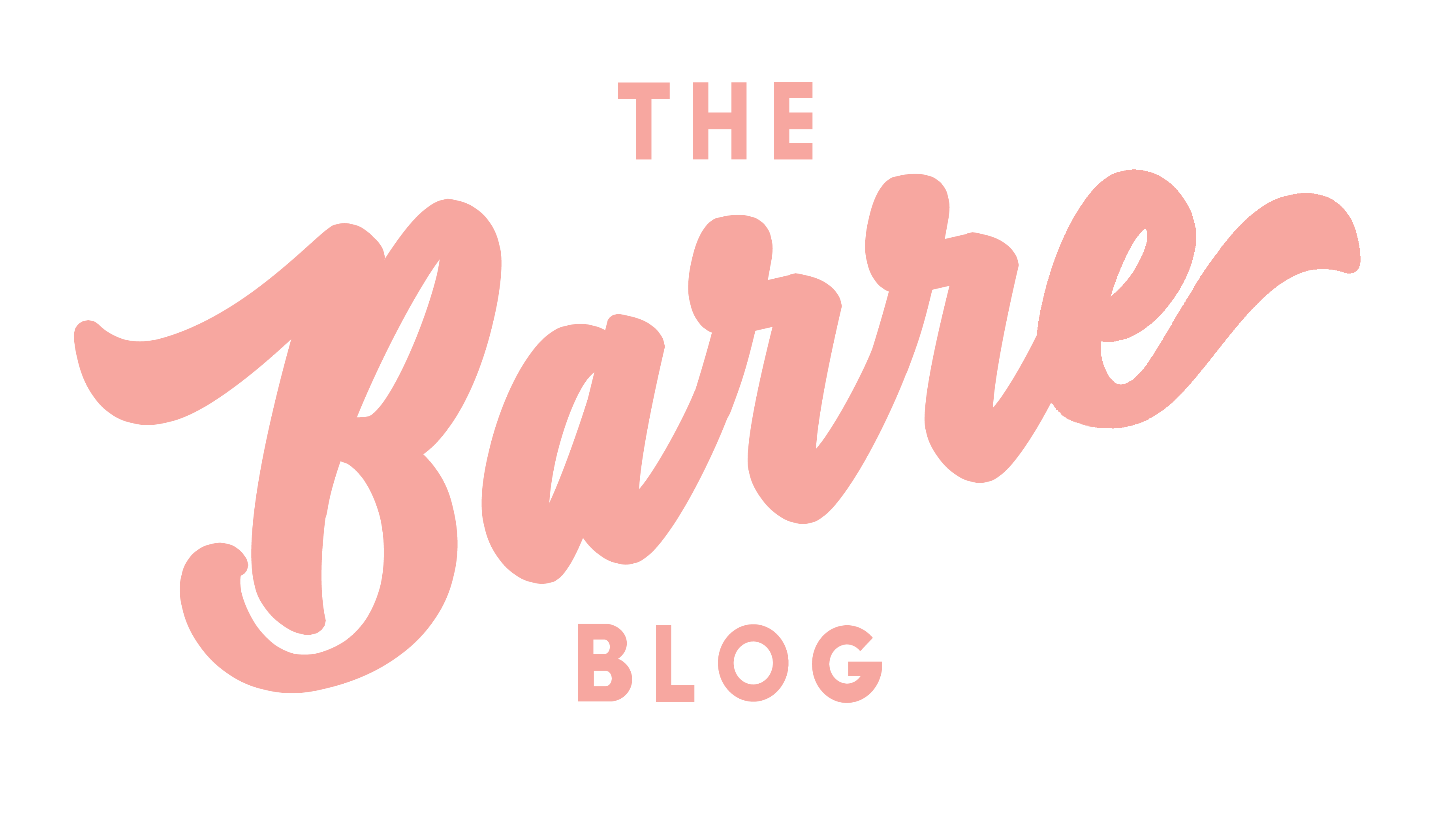We all remember March 2020 well. Depending on where you were, you may have been on the brink of a lockdown or already told to stay at home. It was a frightening time because no one knew what to expect. Would this last for several weeks, months, or even years?
For fitness studio owners and managers, the fear of the unknown was exacerbated by unpredictable closures, at the state or provincial level, not knowing how long it might be before they could re-open again, while some opened a new studio during the pandemic.
From studios offering live streaming classes for the first time to figuring out who to keep on payroll during slower times, I can only imagine how trying this last year must have been for any barre studio owner, and the difficult decisions they must have had to make.
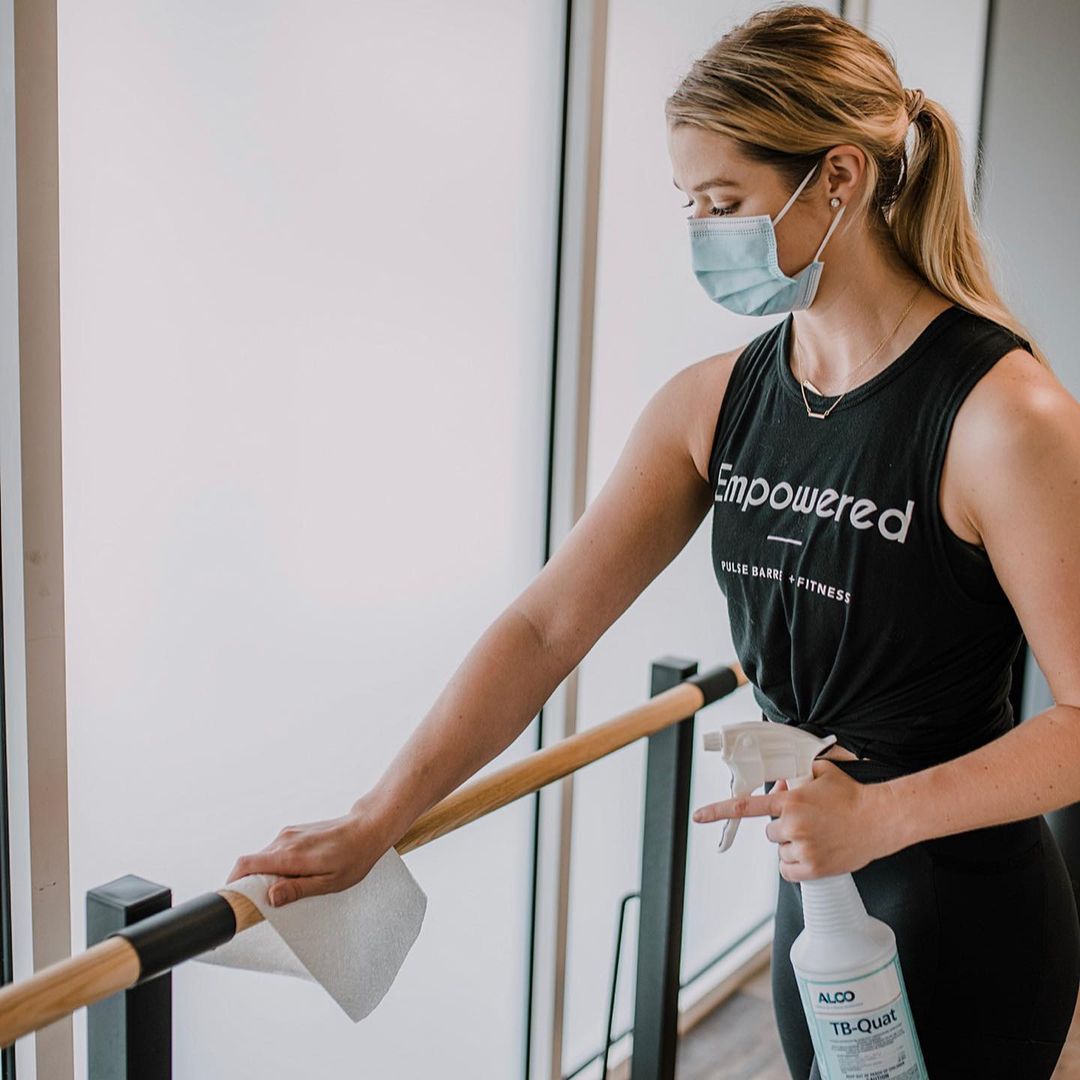
A Pulse Barre and Fitness employee sanitizes a barre in the studio during the pandemic.
Photo credit: instagram.com/pulsebarreandfitness
Not to be too grim but there were business casualties along the way. I counted at least three dozen studios that closed down in the wake of the pandemic and I’m sure there were others that weren’t even on my radar. Some who had to give up their brick-and-mortar space managed to pivot into an online business, while others said they would try to come back in some form or another in the future. Many had to close down permanently.
One year later, I wanted to look back on the year that was, through the eyes of 5 different businesses and their owners or operators. I asked them to reflect on the year, the lows, the silver linings and what they learned along the way.
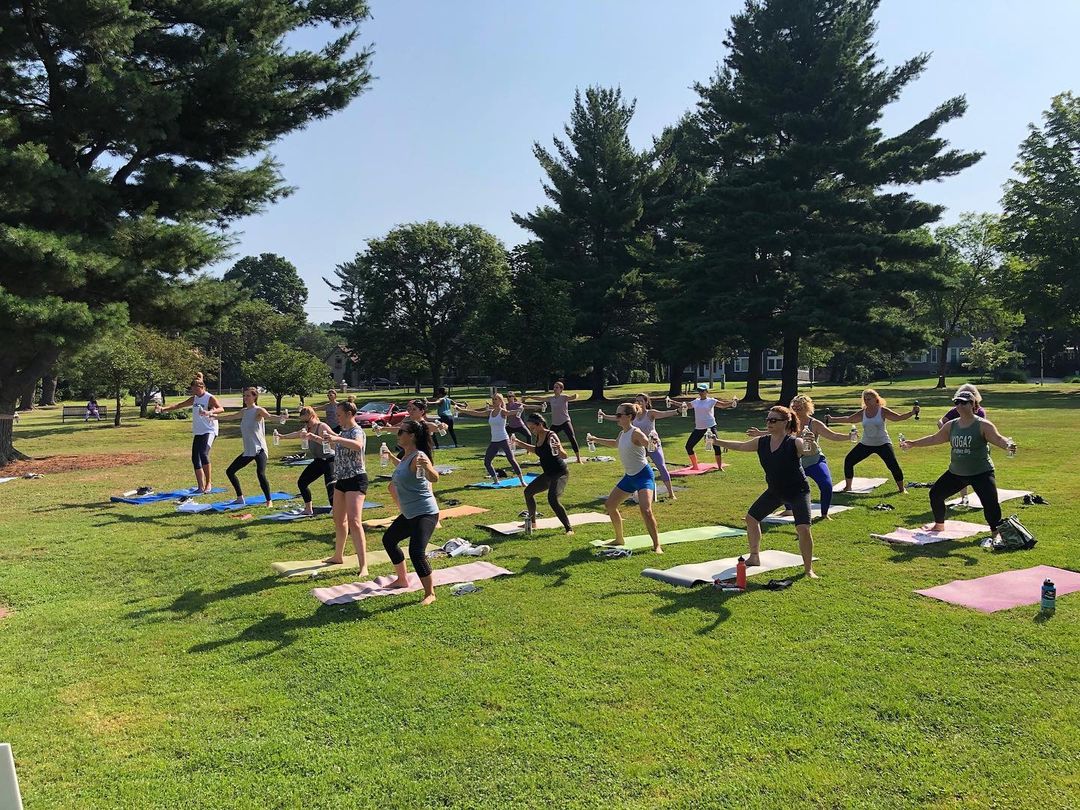
Manchester, New Hampshire’s Barre Life fitness studio holds an outdoor class.
Photo credit: instagram.com/barre_life
Let’s start at the beginning, what were the initial days of the shutdown like for you?
In speaking with owners and managers I noticed some common issues in the initial days of the shutdown. First, there was a lot of fear of the unknown, a lot of figuring out how to get classes online if they weren’t already and concerns about paying rent.
Ming-Bo Lam, Operations Director of Barreworks in Toronto said that “like so many small businesses at the start of the pandemic, we felt as though the ground was crumbling beneath us. We were overwhelmed by fear and uncertainty.”
While figuring out the next steps, Lam said that she and the team took a “deep breath and reconnected to the heart of our brand.”
At its core, Barreworks is a functional movement methodology that provides a unique, safe, and accessible workout to the clients we love and care deeply for. The ultimate question was how can we continue to provide the Barreworks experience – no matter what necessary pivots occur – in a way that prioritizes the safety of our community and the survival of the company.
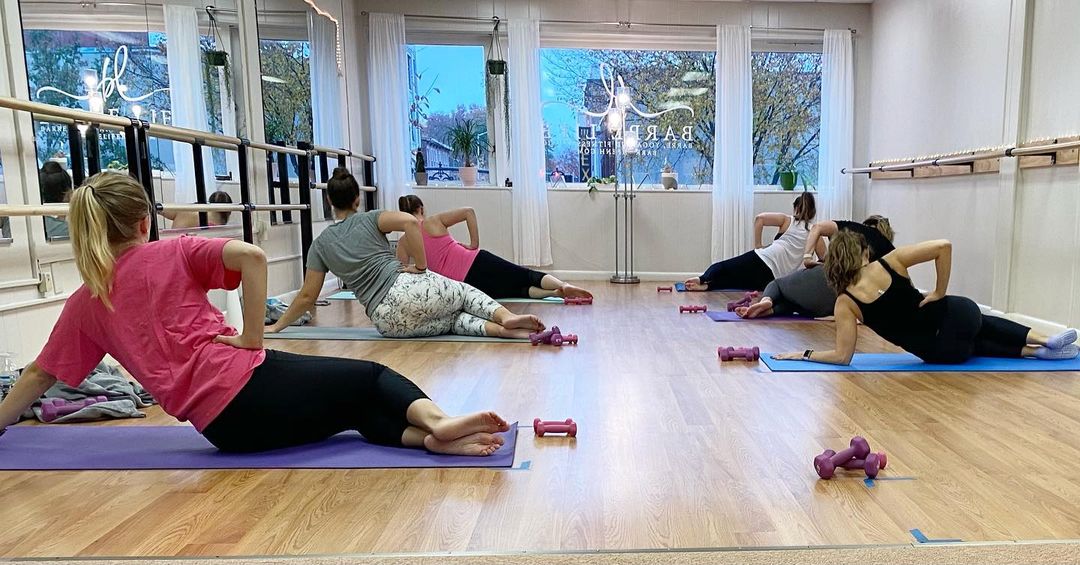
The Barre Life studio in Manchester, NH.
Photo credit: instagram.com/barre_life
South of the border in Manchester, New Hampshire, Ashley Oberg, Owner of Barre Life said, “the first reaction was pure shock, a pit in my stomach and what seemed like a large mountain to climb in front of me.” The one-room studio that also offers Yoga and Trampoline classes had already been doing some preliminary research into streaming live classes, so by the time they needed to pivot, they were able to jump into action.
Over in Arizona, Alli Goozh, Owner of ReBarre North Scottsdale was in a unique position since at the start of the state’s first shut down, she was still an instructor at the studio that she now owns, so she reached out to the owner to offer help.
“We scheduled several Facebook live barre classes since we did not have the infrastructure of an online studio to leverage when the pandemic started,” Goozh said. ” The previous owner did a great job communicating frequently through emails and social media so clients didn’t feel abandoned, on top of our world being so abruptly and massively changed. We did themed classes and tried to create as much connection and community as possible during those first few weeks.”
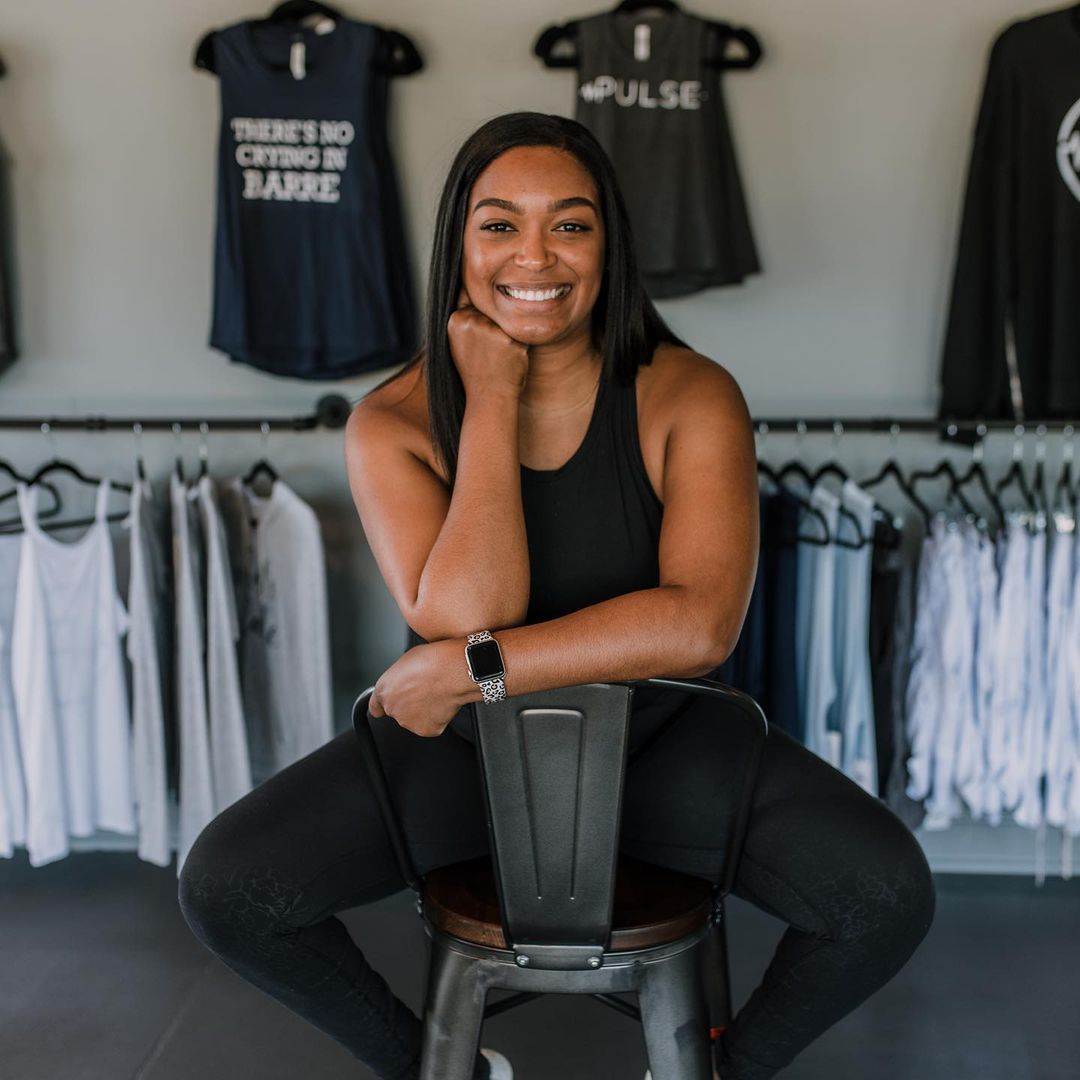
Rodrianna Wallace of Pulse Barre and Fitness in Uniontown, Ohio
Photo credit: instagram.com/pulsebarreandfitness
Also in a unique position was Rodrianna Wallace, Owner of Pulse Barre and Fitness in Uniontown, Ohio. The business had only been in operation for under a year and she was only about one month into her maternity leave when she realized what was going on. “I sent out studio communications as a heads up of what might potentially happen. I eventually made the tough decision to shut down the studio prior to the governor shutting us down. There was so much uncertainty and unknown to the situation so in my mind the best thing to do was to shut the studio down until I had more information.”
Across the pond in London, England, Sophie Ritchie, Owner of DiscoBarre™ and the Disco Barre Studio said “It’s crazy looking back as we innocently had no idea how serious it was going to be! I initially went into an extreme fight or flight mode, which I often do in a crisis.”
Learning along the way
As owners raced to transition to a new way of doing business, not everything ran smoothly as some will admit. From what I saw, at least in the early days of the pandemic is that there was a lot of grace and forgiveness on the part of clients. At least in my experience, no one was expecting management to have everything figured out but we’re often our own harshest critic, so no doubt these entrepreneurs felt they made some mistakes along the way.
Ritchie said she spent way too much money on technology. “I made a lot of mistakes and have wasted so much money, I have so much redundant technology to sell,” she says.
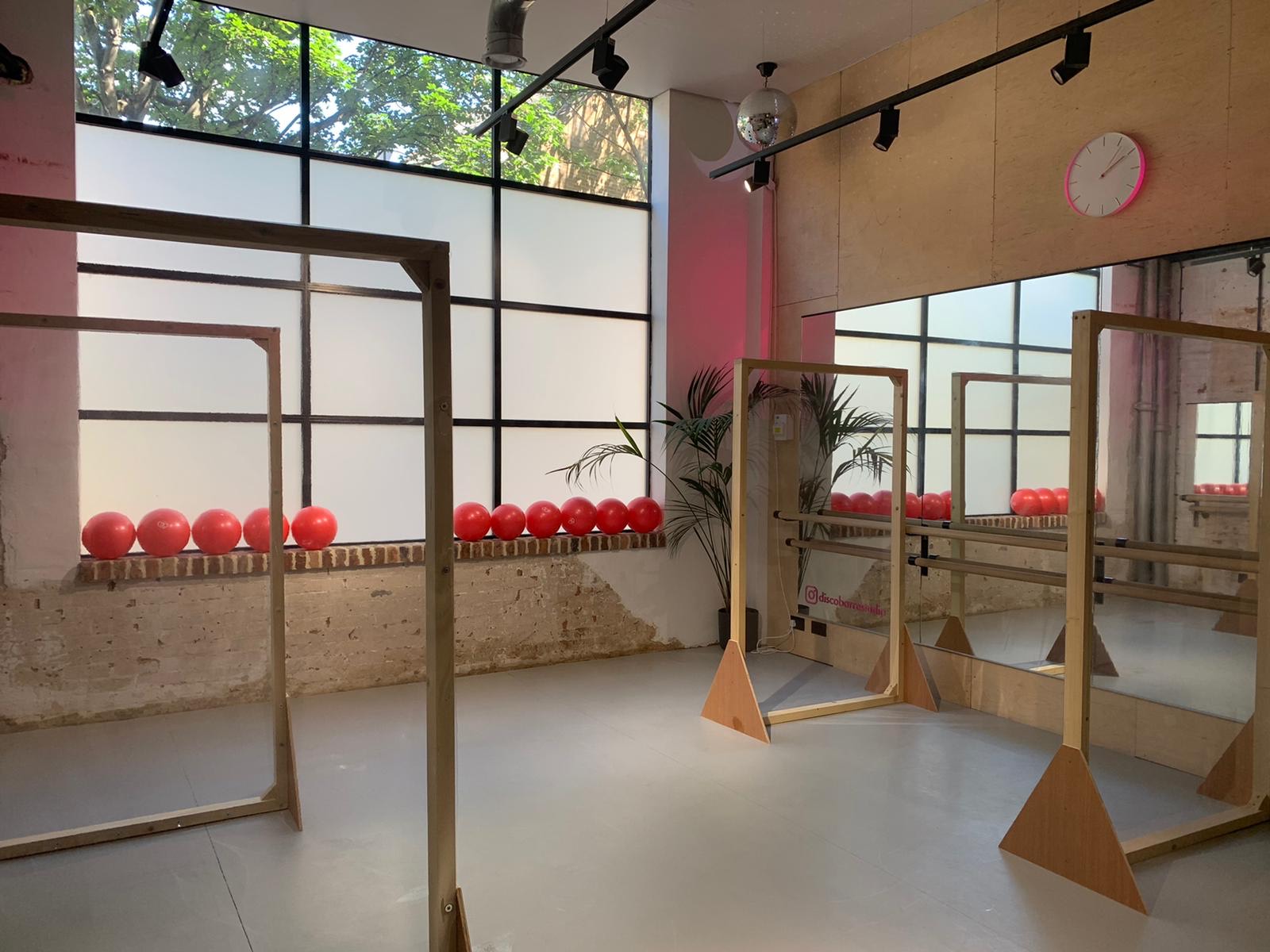
Disco Barre Studio during the pandemic between the shutdowns. Photo credit: DiscoBarre™
Oberg shared a similar sentiment. “I would have invested in proper technology from the start,” she says. “Not realizing this would last so long, so many items were hard to get.”
For Wallace, discovering her new small business didn’t qualify for financial assistance was a bit of an eye-opener. “I was very disappointed to find out that we didn’t qualify for PP loans etc because we were in our first year of business and had not recouped out money from the studio build-out.”
Dealing with unforeseen circumstances
At the end of April 2020 during the first shutdown in Toronto, Barreworks announced it would not be able to re-open its downtown location because the landlord had sold the building and the new owners planned to renovate it immediately. A decision to close the uptown location a couple of months later was just as heartbreaking. “We have determined that due to the layout and size of the studio space, we are unable to provide on a sustainable basis, a safe environment with proper social distancing measures,” signed the Barreworks team in a newsletter to clients.
The closure of Barreworks’ two locations for me was personal. It was the first barre studio in Toronto that I had visited and one that I had frequented quite a bit for nearly a decade.
“This impact was massive,” Lam said. “Our studios were so much more than just a space to run our classes! The majority of our instructors are also professional dance artists, so our physical studios served as rehearsal space and a creative hub of sorts. Losing the places that housed these interactions, places that felt like home for so many of us, at a time of so much uncertainty and anxiety, caused a significant emotional toll.”
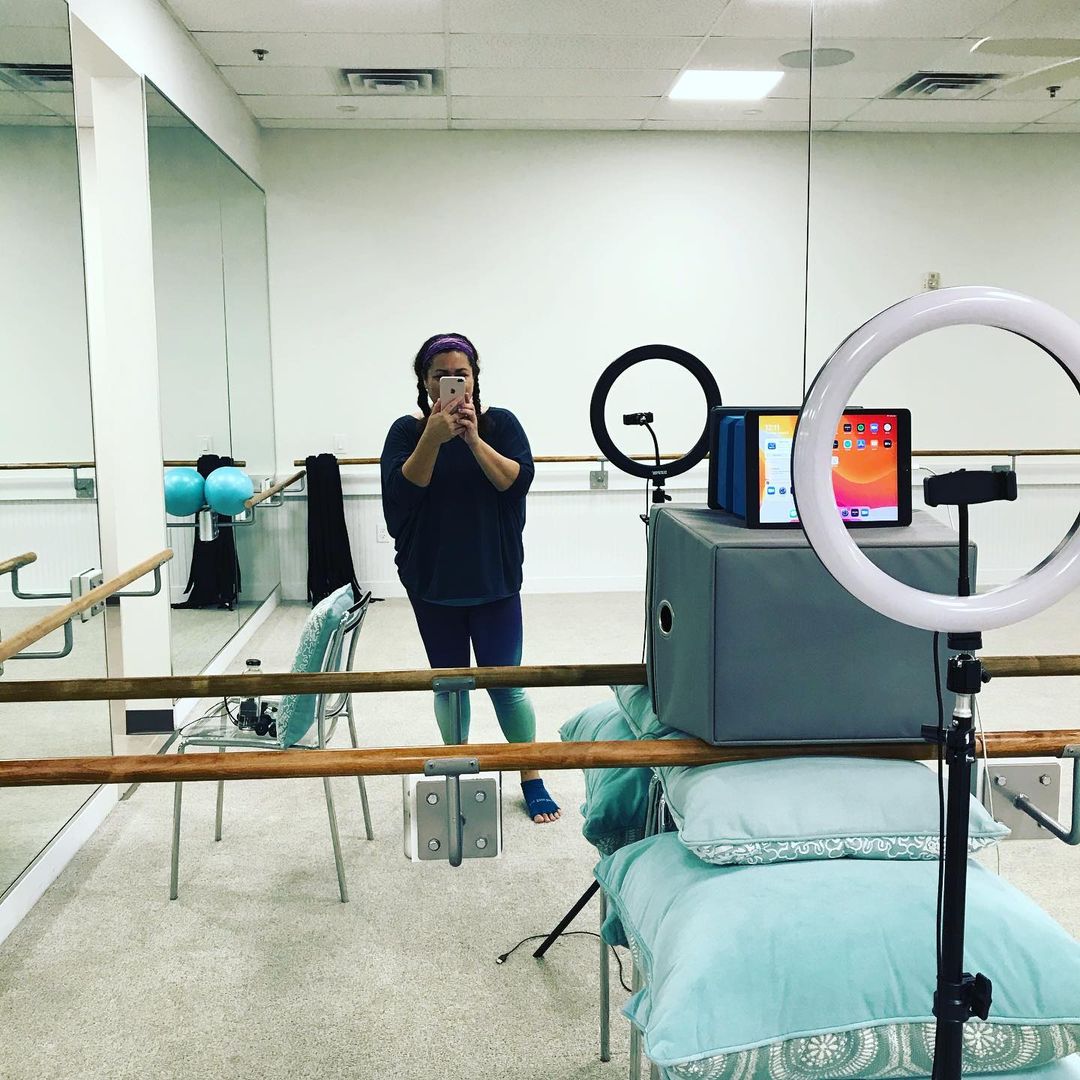
ReBarre North Scottsdale getting set up for virtual classes.
Photo credit: instagram.com/rebarrenorthscottsdale
For Goozh, she says she may have asked for help sooner in retrospect. “I learned through the challenges of this past year that people, both strangers and those who know me, want to help – they want to root for the dream chaser who buys her dream business during the pandemic, they want to donate and share posts to see me succeed.
I would take key actions more quickly – asking for help, applying for grants and asking for donations, stepping outside of my comfort, without as much delay and contemplation. I let overthinking and overwhelm be a barrier. And I believe, in hindsight, that there is a healthy, stable balance between thoroughly processing ideas and moving forward – too much overthinking and delay becomes a detriment in many cases.
As for Wallace, she learned that you can never have too much money saved for a rainy day or 100. “It probably sounds trivial, but the biggest lesson I learned was to ensure you have enough in savings x10 in case of emergencies.”
It’s not all doom and gloom though. There have been some silver linings throughout the pandemic.
Among the very real challenges of operating a business during a pandemic, there were some good things to come out of the last year. Pulse Barre and Fitness “expanded from just a barre studio to a fitness studio,” Wallace explained. Adding that the additions of rhythmic spin, TRX and boot camp classes to the schedule was one of the biggest reasons they were able to survive the pandemic.
Being able to reach more people from across the country and some former clients who moved away was a benefit of going online in 2020, Barre Life’s Oberg said.
Speaking from experience, I’ve tried a dozen or more classes from all over the United States, Canada and the United Kingdom which I view as a benefit of virtual classes.
Ritchie, a single mother, says she loved having her daughter with her 24/7. “We have been so harmonious and I am so grateful for this time. To have this time has been the biggest gift.”

Working out while studying for a Barreworks certification.
Photo credit: instagram.com/barreworksto
“We’ve restructured our internal workflow for increased efficiency and productivity,” Barreworks’ Lam said, “we’ve just launched a sweet new website, our certification program is thriving with both Zoom and self-guided course options, and – quite frankly – we are closer than ever with our incredible instructors and thrilled to be working together as a team.”
I must also commend the Barreworks team on acknowledging that representation, accessibility and inclusion matter. They launched a BIPOC scholarship program in 2020, which covers the cost of tuition for their teacher training program in its entirety.
When asked about that, Lam said “by continuing to improve the accessibility of our classes and teacher training, and the representation of marginalized communities within our company structure, we can continue to hold ourselves accountable for normalizing these changes. Have we made mistakes along the way? Oh, yes – we are human! Are we committed to learning, improving, and continuing forward with the knowledge we’ve acquired? YES.”
A light at the end of the tunnel
ReBarre North Scottsdale, Barre Life and Pulse Barre and Fitness continue to offer a mixture of in-person and virtual classes.
Ritchie is looking forward to getting back into the studio space she rents in The Factory Dalston when things are scheduled to open up in May so she can hold in-person classes again. She also plans on launching an on-demand platform soon.
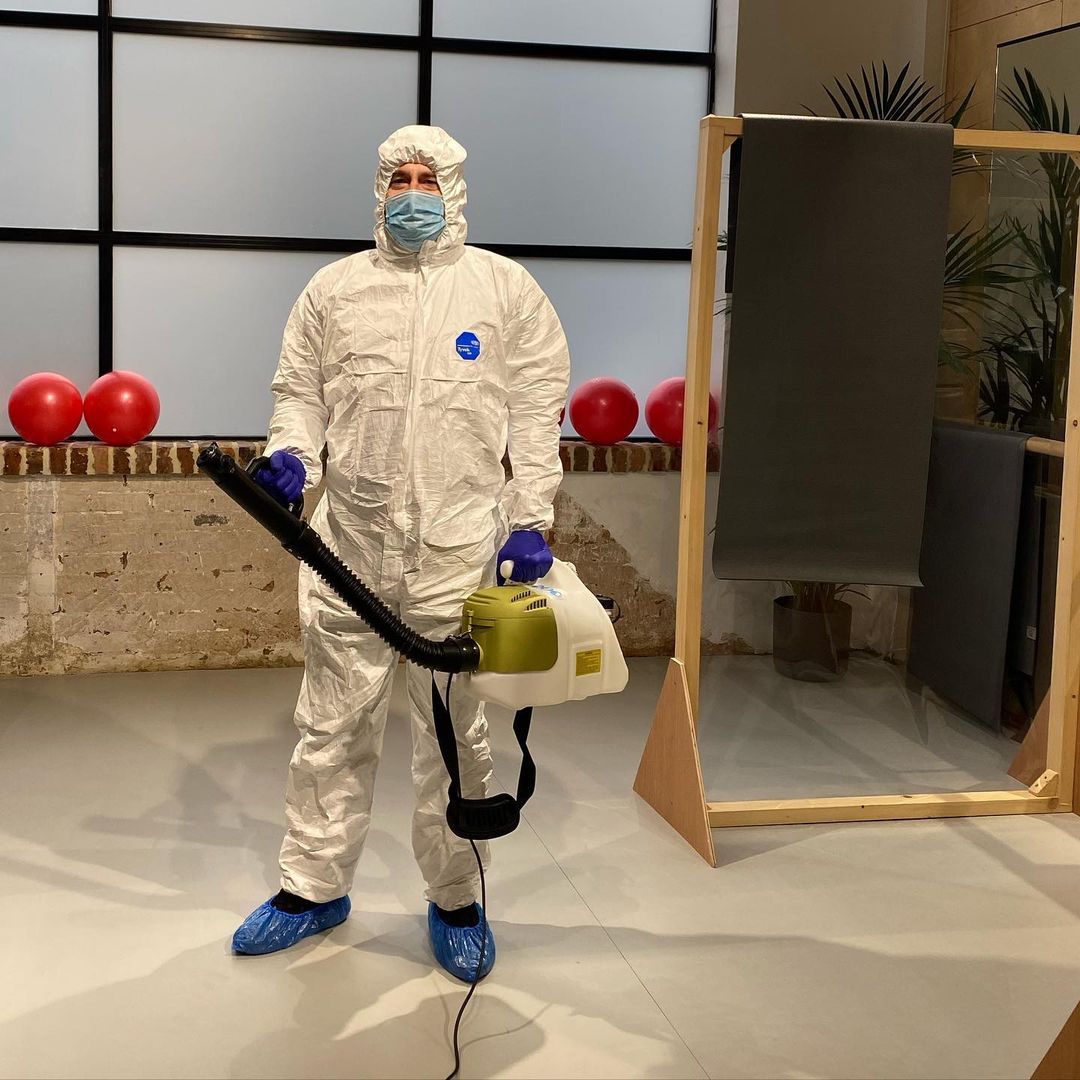
A cleaner does a deep clean of the Disco Barre Studio during the pandemic.
Photo credit: instagram.com/discobarrestudio
Likewise, for Barreworks, their fingers are crossed they will be back into a brick-and-mortar space before the end of the year. “We’re also continuing to expand our Certified by Barreworks programming with a series of continuing education courses available to all fitness professionals.”
“We stand in solidarity with the other boutique studios that have faced similar challenges and studio closures in light of the pandemic,” Lam said. “The resiliency and perseverance of fellow studio owners and small-business leaders inspire us to keep moving forward.”



